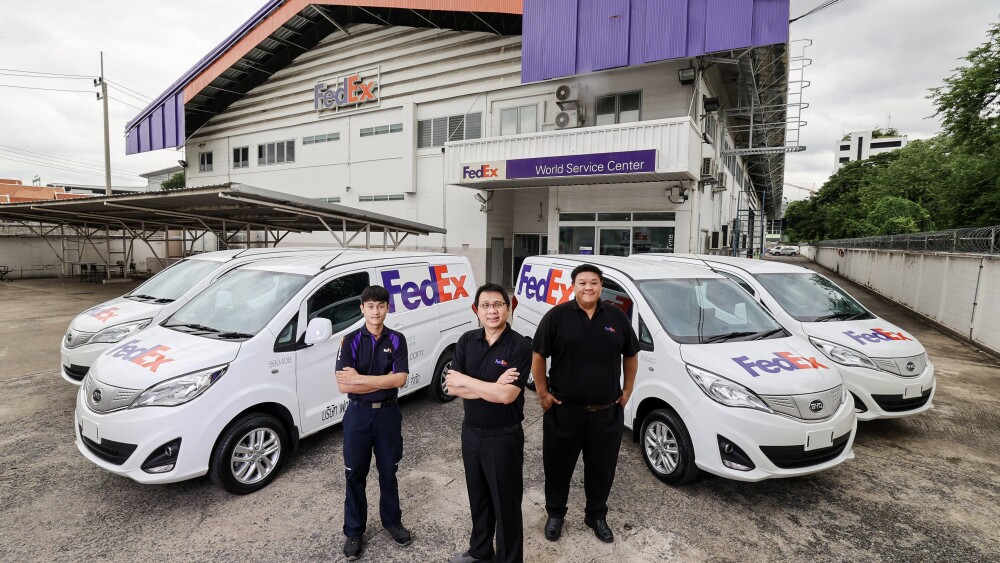Bangkok, Thailand, October 15, 2024 – Federal Express Corporation, one of the world’s largest express transportation companies, has advanced toward its vehicle electrification goals by introducing four new zero-tailpipe emissions electric vehicles (EVs) to its fleet in Thailand. The expansion builds on the success of its initial launch of EVs in 2022 as part of the company’s efforts to transition to an all-electric parcel pickup and delivery (PUD) fleet by 2040.
The new EVs will support parcel PUD operations within high-traffic areas in Bangkok and Pathum Thani such as Chaeng Watthana, Tiwanon, Lat Phrao, Ram Inthra, Ngam Wong Wan, Prasert Manukit, Sukhonthasawat, Thammasart, and Chiengrak. Designed for last-mile deliveries, the EVs have an estimated range of up to 275 kilometers on a full charge.
As of August 2024, the existing EVs have contributed to an estimated savings of 153.06 metric tons of CO2 emissions since entering service in 2022. The four new EVs are estimated to avoid about 27.51 metric tons of tailpipe emissions per year, based on estimated distance traveled on planned routes using an EV versus the historical use of diesel.
“At FedEx, we have set ambitious sustainability goals to help us achieve a goal of carbon neutral operations by 2040. This includes a phased approach to vehicle electrification, which is a crucial part of our roadmap to reduce environmental impact and create a more sustainable future for generations to come,” said Sasathorn Phaspinyo, managing director, FedEx Thailand. “The rapid growth of e-commerce accelerates the need to make our operations more sustainable. Our endeavor to electrify our fleet will have long-term benefits of reducing carbon emissions in our operations while providing better and more sustainable service to our customers in Thailand.”
Beyond electric delivery vehicles, FedEx has implemented several other initiatives to promote sustainability in its operations to support the company’s sustainability goals as well as Thailand’s national goals of carbon neutrality by 2050 and net-zero greenhouse gas emissions by 2065[1]. These include the adoption of electric forklifts in FedEx facilities, energy-saving LED lighting and cargo belts in replacement of conventional shrink wraps. In 2023, FedEx Thailand collaborated with N15 Technology’s Orphan Waste program to recycle over 3,500 kilograms of waste such as plastic wraps, label stickers, and paper cores from our operations into refuse-derived fuel (RDF) for cement kilns. These efforts offer alternative means of waste management by reducing landfill waste and helping to lower greenhouse gas emissions, such as methane.
The company has also launched a cloud-based carbon emissions reporting tool, FedEx® Sustainability Insights, to give its customers in Thailand access to historical emissions information on their shipments within the FedEx network. FedEx customers can use the data to help make more informed decisions on their future shipping strategy to reduce their impact to the environment.
